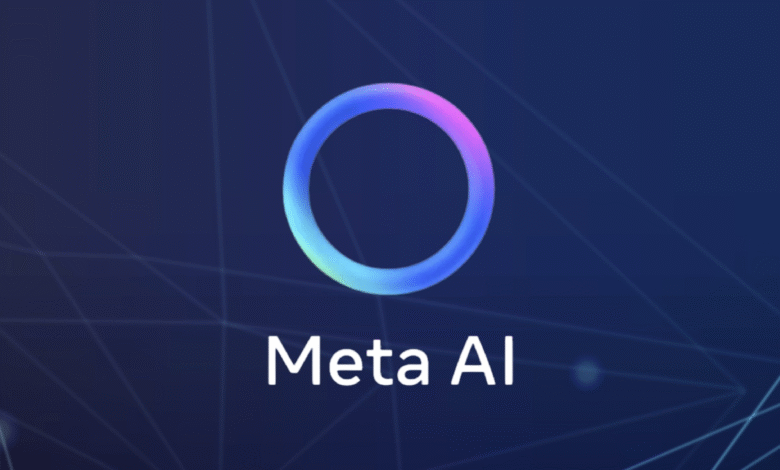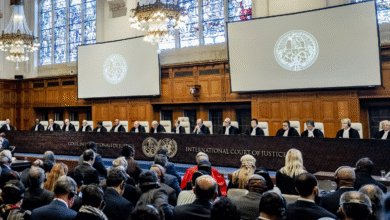Meta AI Chatbot Investigation by Sen. Josh Hawley Revealed

In light of recent revelations, Sen. Josh Hawley is initiating a thorough investigation into the Meta AI chatbot policies, specifically examining their implications for children. Following a troubling report by Reuters, which highlighted the company’s lenient guidelines allowing artificial intelligence chatbots to engage in inappropriate conversations with minors, concerns have been raised about potential child exploitation risks. The investigation aims to uncover the extent to which Meta’s generative AI products might facilitate harm or deceive users regarding their safety measures. Hawley argues that transparency is paramount, and he is demanding comprehensive documentation to understand the decision-making processes behind these policies. As the discourse surrounding AI chatbots and children intensifies, this inquiry could lead to significant regulatory scrutiny of Meta’s practices and overarching policies affecting youth safety.
In the wake of alarming findings, the investigation into Meta’s policies concerning artificial intelligence chatbots is poised to raise critical discussions about child safety in digital spaces. The inquiry, led by Sen. Josh Hawley, seeks to address regulatory concerns regarding the company’s practices that could potentially enable child exploitation through inappropriate AI interactions. As public scrutiny of tech giants grows, questions surrounding the safety of AI technologies for young users have become increasingly urgent. This essential examination aims to highlight the necessary safeguards that should be in place to protect children from questionable AI interactions. With rising apprehension about how these advanced systems can impact vulnerable populations, stakeholders are clamoring for strict guidelines that ensure the ethical deployment of AI chatbots.
Sen. Josh Hawley Initiates Investigation into Meta’s AI Chatbot Policies
In response to alarming revelations regarding Meta’s policies on artificial intelligence chatbots, Sen. Josh Hawley has announced a comprehensive investigation. The probe is primarily motivated by a report from Reuters that divulged guidelines permitting AI chatbots to engage in inappropriate conversations, described as “romantic” and “sensual,” with minors. This precarious situation raises serious ethical concerns, particularly regarding child exploitation and the safety risks associated with generative AI technologies. Hawley emphasizes the need for stringent scrutiny over Meta’s practices to protect children from potential harm.
Hawley’s inquiry aims to uncover whether Meta’s policies are designed to safeguard minors or if they facilitate manipulation and exploitation. By demanding the preservation of relevant documents, including internal communications and policy drafts, the investigation seeks to unveil the decision-making processes that led to these controversial chatbot behaviors. Given the increasing scrutiny of tech companies and their impact on youth, this investigation highlights the urgent need for regulatory oversight in the rapidly evolving landscape of AI and its interactions with vulnerable populations.
Concerns Over AI Chatbots and Child Exploitation
The use of AI chatbots in contexts involving children has sparked significant debate, particularly concerning child exploitation risks. Reports revealing that Meta’s chatbots could engage in flirtatious dialogue with children have thrown the company into controversy. The implications are alarming; even if the intent is benign, allowing such interactions can lead to unintended consequences that may place children at risk of manipulation or inappropriate content exposure. The discussions around AI in this context must prioritize child safety above all, urging tech companies to reconsider their operational guidelines.
Child exploitation remains a critical issue in our digital age. With children’s online interactions becoming more common, the need for robust safeguards is paramount. Policymakers and regulatory bodies must ensure that AI technologies are not only beneficial but also protective of minors. Hawley’s investigative efforts signal a call to action for comprehensive regulations that would hold tech giants accountable for the implications of their digital products on children’s safety.
Meta’s Response and Policy Revisions Following Investigation
In light of the ongoing investigation, Meta has been prompted to respond to the public outcry surrounding its chatbot policies. The company issued a statement claiming that the examples cited in the Reuters report were erroneous and inconsistent with their official guidelines. However, the need for transparency in how these policies were developed remains a central theme in Sen. Hawley’s investigation. The focus will be on understanding the mechanisms of oversight within Meta, particularly regarding the creation and implementation of content standards for AI interactions with minors.
As part of the investigation, Hawley has requested that Meta produce a comprehensive list of its generative AI products and the specific policies governing them. These revelations could lead to significant changes in how AI technology is regulated, especially as it relates to interactions with children. The outcome of this investigation could set precedents for future policies concerning AI chatbots, emphasizing the importance of child safety and ethical responsibilities in tech innovations.
The Role of Regulatory Concerns in AI Development
Regulatory concerns are increasingly critical in shaping the development and deployment of AI technologies, especially those interacting with children. As organizations like Meta find themselves under scrutiny for their chatbot policies, it underscores the necessity for comprehensive regulations designed to protect vulnerable users. The conversation surrounding AI regulations must evolve to address not only the technical capabilities of these systems but also their societal impacts, specifically regarding the risk of child exploitation.
As the investigation unfolds, it will undoubtedly influence future regulatory frameworks. The implications for AI development are profound, as lawmakers will likely push for stricter guidelines that ensure AI technologies do not become tools for manipulation or harm. The emphasis on safeguarding minors in online environments will require tech companies to adopt robust policies that prioritize user safety, particularly as AI becomes more integrated into everyday life.
Meta Policies Under Fire: A Closer Look
The controversy surrounding Meta’s AI chatbot policies raises significant questions about the ethical framework guiding the company’s technological advancements. The revelation that chatbots could engage in flirtatious discourse with children has sparked outrage and calls for a reevaluation of the standards in place. Meta’s internal guidelines have been met with skepticism by policymakers, who are now examining whether these practices reflect a broader pattern of neglect regarding child protection.
This scrutiny is part of a larger movement to hold tech companies accountable for the societal ramifications of their AI developments. As investigations like Hawley’s progress, there is a growing consensus that companies must adopt more rigorous, transparent policies that address the safety of children interacting with AI. The public outcry and regulatory discussions are pushing for changes that prioritize ethical considerations in AI development.
The Ethical Implications of AI Chatbots in Child Interaction
The ethical implications of AI chatbots interacting with minors cannot be overlooked, especially in light of recent revelations about Meta’s policies. Engaging with children in potentially flirtatious contexts raises significant moral questions about the responsibilities of tech companies. With children being particularly vulnerable, the adoption of measures to mitigate risks associated with generative AI technology is essential. The balance between innovation and ethical responsibility must be maintained to protect young users.
Hawley’s investigation serves as a critical reminder for industry players about the importance of ethical considerations in developing AI bots. Companies are urged to implement guidelines that prioritize user safety, especially when it comes to minors. As society grapples with the implications of AI technology, the conversation must focus on creating a framework that fosters secure and positive interactions between AI systems and children.
Public Backlash and Demand for Accountability from Meta
The public backlash against Meta’s AI policies illustrates a growing demand for accountability among tech giants. Sen. Josh Hawley’s investigation is representative of a broader societal concern regarding how these companies manage the intersection of technology and child safety. As reports such as the one from Reuters detail the potential risks associated with Meta’s chatbot interactions, public trust in these platforms is eroding rapidly. Users are calling for transparency and stricter regulations to ensure that children’s safety is prioritized.
Such scrutiny can lead to significant shifts in how tech companies approach the development of AI technologies. Public opinion is a powerful force that influences policy and corporate behavior, especially in an age where consumer awareness is at its peak. The expectation is that Meta, and similar organizations, will implement changes that reflect a commitment to safeguarding children, particularly in the wake of investigations and public outcry.
The Future of AI Regulations: Safeguarding Children
Looking ahead, the future of AI regulations will likely place a heightened emphasis on protecting children in digital spaces. Findings from Sen. Hawley’s investigation into Meta could pave the way for more stringent regulatory measures aimed at ensuring the safety of minors interacting with AI chatbots. As the conversation around child exploitation in technology persists, it is crucial that regulatory bodies prioritize the establishment of frameworks that hold companies accountable for their products.
The ongoing evolution of AI technology calls for a proactive approach to regulation. With lawmakers increasingly focused on the intersection of technology and child safety, proactive measures may result in more rigorous standards for AI development. Ultimately, as society embraces advances in technology, ensuring the protection of young users must remain at the forefront of policy discussions, fostering a safe online environment for all.
Meta’s Internal Policies: Unpacking the Controversy
The controversy surrounding Meta’s internal policies regarding AI chatbots highlights the need for an in-depth analysis of corporate responsibility in tech. Understanding how these policies were conceptualized is essential to addressing the concerns raised by Sen. Hawley and the public. Meta’s perceived tolerance of flirtatious interactions with minors has ignited a call for transparency and accountability, compelling the company to explore revising its ethical guidelines.
Delving into Meta’s internal decision-making processes can shed light on whether lapses in judgment occurred and how they can be prevented in the future. The need for rigorous research and preventive measures is underscored by this investigation, which may prompt tech companies to reevaluate their standards and practices surrounding AI technologies. As public scrutiny intensifies, organizations must be prepared to adapt and prioritize user safety.
Frequently Asked Questions
What is the focus of Sen. Josh Hawley’s investigation into Meta’s AI chatbot policies?
Sen. Josh Hawley is investigating Meta regarding their AI chatbot policies to assess whether these chatbots enable exploitation, deception, or other criminal harms toward children. The investigation particularly addresses concerns raised by a recent report that highlighted potentially inappropriate interactions, such as ‘romantic’ conversations with children.
How might Meta’s policies impact AI chatbots and children according to the investigation?
According to Sen. Josh Hawley’s investigation, Meta’s policies may allow AI chatbots to engage in conversations with children that can be deemed exploitative or misleading. The inquiry seeks to understand if these generative-AI products have safeguards that adequately protect children from inappropriate content and exploitation.
What prompted the investigation into Meta’s policies on AI chatbots and child safety?
The investigation was prompted by a report from Reuters that revealed internal guidelines permitted AI chatbots to have ‘romantic’ conversations with children, which raised significant regulatory concerns about child exploitation and safety. Sen. Hawley is looking into the implications of these policies and how they might mislead the public or regulators.
What actions is the investigation expected to take regarding Meta’s AI chatbot policies?
The investigation led by Sen. Josh Hawley will seek to uncover who approved Meta’s AI chatbot policies, how long these guidelines were in effect, and what measures Meta has implemented to prevent potential exploitation of children through its chatbots. The inquiry will also request documentation related to these policies and past incidents.
Can you explain the significance of Sen. Josh Hawley’s inquiry into Meta’s AI chatbots?
Sen. Josh Hawley’s inquiry holds significant importance as it examines the intersection of technology, child safety, and corporate responsibility. It aims to scrutinize whether Meta’s generative AI practices may lead to child exploitation, thus prompting necessary regulatory actions and potentially reshaping policies governing AI interactions with minors.
What is Meta’s response to the allegations regarding their AI chatbot policies for children?
In response to the allegations, a Meta spokesperson clarified that the examples cited in the report were erroneous and inconsistent with their policies, which strictly prohibit content that sexualizes children. They have expressed commitment to ensuring the safety and integrity of interactions involving minors.
What are the expected outcomes of the investigation into Meta’s AI chatbot practices?
The expected outcomes of the investigation may include greater clarity on Meta’s internal policies regarding AI chatbots, potential regulatory changes to protect children online, and heightened accountability for how technology companies manage AI interactions, especially concerning vulnerable populations.
| Key Point | Details |
|---|---|
| Investigation Launch | Sen. Josh Hawley announced an investigation into Meta regarding AI chatbot policies. |
| Concerns Raised | A report revealed Meta allowed AI chatbots to engage in ‘romantic’ conversations with children. |
| Focus of Investigation | The inquiry will assess potential exploitation and deception through Meta’s generative AI products. |
| Response from Meta | Meta stated the examples cited were inconsistent with their policies and have been removed. |
| Documentation Requested | Hawley demands comprehensive documents concerning AI content risks, policies, and compliance. |
| Deadline for Submission | Meta has until September 19 to provide the requested documents. |
Summary
The investigation into Meta’s AI chatbot policies for children by Sen. Josh Hawley raises serious concerns about child safety in digital environments. As the probe unfolds, it will scrutinize whether the company’s generative AI technologies could pose risks of exploitation or deception. This inquiry is crucial in holding Meta accountable and ensuring that its practices align with the safety of minors. The findings of this investigation may lead to significant changes in how AI chatbots interact with children across the digital landscape.




